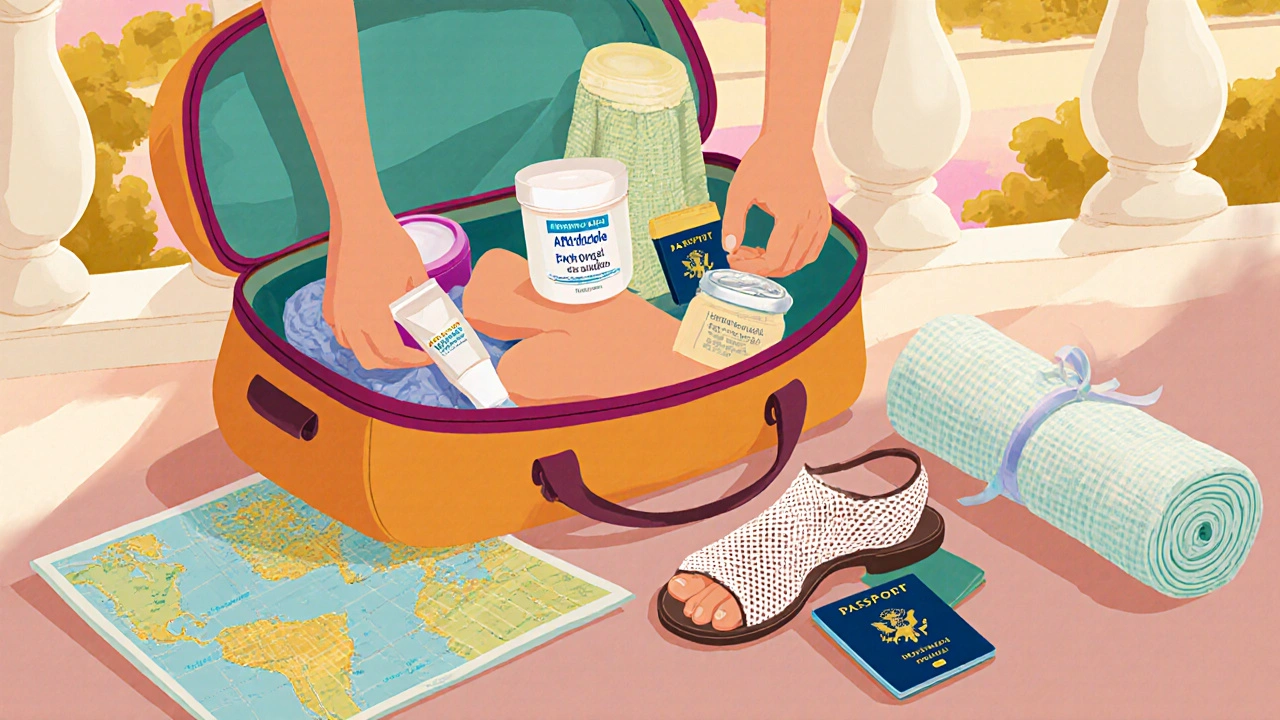Skin Infection Prevention: Tips, Treatments, and Best Practices
When talking about Skin Infection Prevention, the practice of avoiding bacterial, fungal, or viral invasions on the skin through proper care and timely treatment. Also known as skin infection control, it helps keep the integumentary system healthy and reduces the chance of complications.
Effective prevention starts with a few key players. Antibiotics, drugs that kill or inhibit bacteria are essential when a bacterial breach occurs; they can stop an infection from spreading if used correctly. Topical Steroids, anti‑inflammatory creams that calm skin irritation help manage early redness and swelling, buying time for the body’s defenses. Antifungal Agents, medications that target fungal growth are the go‑to for preventing and treating athlete’s foot, ringworm, and similar conditions. Consistent Skin Hygiene, regular cleaning, drying, and moisturizing routines creates a barrier that makes it harder for pathogens to stick. Finally, a well‑functioning Immune System, the body’s natural defense network supports all these measures by identifying and destroying invaders before they cause trouble. Together, these elements form a network: skin infection prevention encompasses hygiene, antibiotics intervene when bacteria slip through, topical steroids reduce inflammation, antifungal agents stop fungal colonization, and the immune system ties everything together.
Key Strategies for Keeping Your Skin Safe
Mastering skin infection prevention means applying the right strategy at the right time. Start each day with a gentle cleanse that removes excess oil and debris without stripping natural oils; follow with a fragrance‑free moisturizer to keep the barrier intact. When you notice a cut or abrasion, clean it with mild soap and apply a thin layer of an over‑the‑counter antibiotic ointment if the wound is at risk of bacterial contamination. For chronic conditions such as eczema, a prescribed topical steroid can keep flare‑ups under control, reducing the skin’s vulnerability to infection. If you’re often in damp environments—gyms, swimming pools, or rainy climates—use an antifungal powder or spray on feet and groin areas to keep fungal spores at bay. Nutrition also plays a role: vitamins A, C, D, and zinc support the immune system, making it more efficient at spotting and eliminating harmful microbes. Lastly, stay up to date on vaccinations that protect against viral skin infections like varicella (chickenpox) and herpes zoster.
Below you’ll find a curated set of articles that dive deeper into each of these topics. From detailed antibiotic comparisons to practical guides on using topical steroids safely, the collection offers actionable insights you can start using today. Explore the range, pick the tips that fit your routine, and keep your skin healthy and infection‑free.

Top Prevention Strategies for Travelers at Risk of Ringworm
Learn proven ringworm prevention tactics for travelers, from packing antifungal gear to daily hygiene habits, early treatment steps, and post‑trip cleaning.
